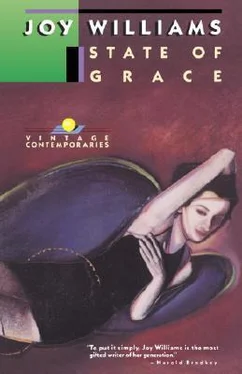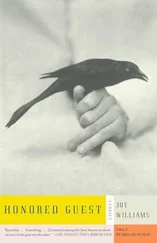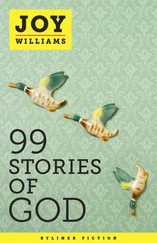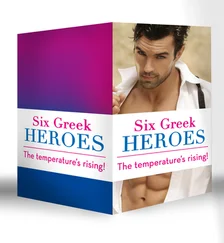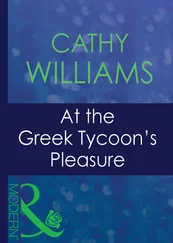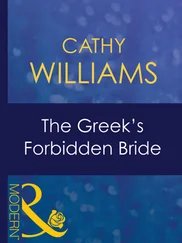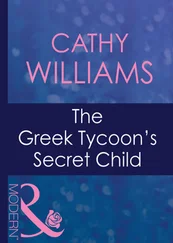“I gotta get back,” the driver said tensely. “I got obligations.”
“I think I’ll stay,” Kate said. “I think I’ll have another drink.”
“I couldn’t care less,” the driver said. She went back into the bar and played the juke box. The patrons were mostly parents and their children drinking ginger ale.
“That was the song!” a child shouted. “That woman played just exactly the song I was going to play. Now I won’t have to play it.”
Kate went into the ladies’ room. GULLS it said. She washed her hands and went back through the bar and outside. Between the bungalows and BRYANT’S BEASTS were stacked the boxes of her books. Her sunglasses were steamed up again and she still didn’t have a Kleenex. She took them off. She could hardly see any better even then, it being night. She went over to the crooked building that held the animals. There was a bleak smell of droppings. She tried to look in the dark windows.
“What are you doing around here?” a voice hissed. “You been sent out here by somebody to drop a match?”
“Oh no,” Kate said sadly.
“They probably said ‘You just go on out there and move around and smoke a little,’ ” Corinthian Brown’s voice said.
“I came over to see the animals,” she said. “I just wanted to look at them.”
“Jest?” the voice rose. “Jest! That’s something which ain’t easy at all!” But the door opened up and she went in.
CORINTHIAN BROWN’S DADDY shot down robins in the winter and baked them in delicious flaky pies. His daddy always would say that he could never understand how a bird so full of shit as the robin, dumping all his mean bug and berry shit over the clean clothes on the clothesline, could taste so good cut up in little pieces with a few peas and a little flour and water. His daddy shot up robins so neat you would have thought they weren’t dead at all.
One morning as Little Corinthian was turning out of the yard to get to school, a police cruiser came screaming up the street and turned into their yard, shaking up the mud and almost knocking down the porch. The Audubon Society had complained, the Chamber of Commerce, the League of Women Voters and the Surfside Bank who always had their ear to the ground for the rumble of possible trends. The tourists were horrified, the paper indignant and Brown became an object of rage and the chosen warning to the Negro community that the sick practice would no longer be tolerated. In Night Court four months later, he was sentenced to two years in the County Jail. The only voice raised in his behalf was that of an ugly smart-assed little dribble of a man who was later found to be not wanting to pay his federal income tax and who said that the shooting of songbirds in the neighborhood would not be necessary were there better housing and more jobs. Everyone agreed that if they heard that song one more time they’d throw up.
Corinthian’s daddy didn’t say anything, not even to his boys. After one year in the jailhouse, he showed enough potential and good intentions to be considered for the position of dog-boy on the work crews sent out daily. He was a good dog-boy because he was strong and had an easy way with them and because he had good lungs and legs and could run with them through the sloughs and across the fields and weeds when the sheriff’s people were after fugitives. Brown no longer had anything to do with the police who were a loutish bunch of questionable authority. For running with the dogs he got a lot of fresh air and 1,500 extra calories worth of food a day. Two days before he was to be released, he wound the leashes of his dogs around a light pole and stepped down the road for a can of beer. He was rearrested and sentenced to an additional six months. After that was up it was springtime and he took a bus up to New Jersey where, after writing a note to his boy Corinthian on the back of a postcard which depicted the colorful Howard Johnson’s on Exit Seven of the Turnpike, he disappeared forever.
The writing on the postcard said:
“I’m sorry about doing this but I am worn out and got nothing to give you anyways. I hope that by now you have stopped pulling on yourself and have found yourself a woman and cleared up your face. I had a Fisherman’s Platter here and I hope you and Amos will be able to get one of those some day.”
Corinthian could see that most of the message was for him but the part about the woman must refer to his brother as Corinthian was only seven years old.
CORINTHIAN BROWN’S BROTHER shot up mayonnaise and peanut butter as well as anything else he could pop. He had blue eyes which are always very bad luck for a black man. Corinthian loved his brother and worried about him incessantly. When Amos wasn’t messing himself up in the shed, he would be very sweet to Corinthian and make as much of a meal that was possible for him when he came home from school. Most usually, it was a lard and sugar sandwich and a pitcher of Kool-Aid. In the months of May and June it was a strawberry and sugar sandwich. Amos always asked Corinthian what he learned from his books and would always find his replies hilarious.
One evening just before suppertime, Corinthian heard a scuffling in the shed and opened it to find Amos writhing on the floor, his blood, for the most part, filled with liquid Sterno. It seemed the police were always driving through the neighborhood and this evening just before suppertime was no exception. They saw the little boy howling and crying and taking dizzy steps into and out of the shed. By the time they carried Amos into the back of the squad car he was already dead.
“Lookit that,” one policeman said to the other, “it’s pissing all over the seat,” and they made Corinthian clean everything up before they moved on.
Amos was buried in a place that was difficult to get to. Corinthian couldn’t remember if they had told him where. Corinthian had a series of jobs for the next few years which didn’t work out. He had an unpleasant skin condition which people were fearful they’d contract. They thought it was catchy, like ping-pong flu. All the doctors Corinthian had seen had told him that the disorder was psychosomatic and caused neither by heredity or dermatophytes. How could it be catching? It had caught him and that seemed to be the end of it.
“Are you often afraid?” Corinthian asked Kate that night.
The ostrich was following the darkness falling off her silver earrings as she moved her head.
“They like shiny things,” Corinthian said, interrupting himself. “They like to play with spoons.”
“Yes,” Kate said.
“Are you afraid all the time?”
“No,” she said.
“I’m afraid all the time,” Corinthian told her bravely.
TERRY BARFIELD’S PRETTY PIEBALD was the reason he was in the sheriff’s posse. That horse represented the life he loved and couldn’t get enough of — the gear and the parades and the good camaraderie and the dragging for criminals or fishermen who drowned off the keys or in the swamp. He knew it was all ornamentative and an anachronism but it was easily the most significant part of his life. He had four daughters who gave him nothing but back talk and one frail son who spent every moment messing with numbers, adding, multiplying, subtracting, dividing like a fancy computer. “There’s never enough paper around here,” the boy would scream and beat his head on the table until it bled. Terry Barfield had nothing but trial and misery and his beautiful piebald horse. He was a cracker and his poppa had been a cracker but a real one, an expert with his whip, and foot-loose and fancy in his leisure after driving cattle all day, and Terry Barfield wished that he had been him, born him or even born before him. That was the time to have been a man. He would have shown them what for then. He would have been cock of the rock.
Читать дальше
